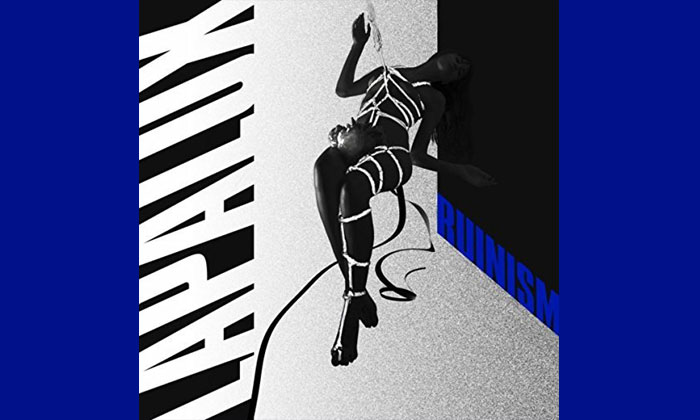Review of Ruinism Album by Lapalux
One of Ruinism's promotional shots is of Stuart Howard - for it is he that is Lapalux - dressed in a baseball cap, sweatshirt and a pair of jogging bottoms. In many other contexts for anyone processing that image some form of conditioning might start to kick in, judgment - prejudice, even. This quickly drawn conclusion may offer some kind of easily recognisable identity - the producer maybe as some kind of grime laptician, a boutique dark techno jammer or a purveyor of Rustie-esque nu funk and plasticised r&b.

If this was the outcome you'd be wrong and right on most counts. Holden's earlier works bore the hallmarks of the splenetic, genre bending Brainfeeder label on which he's made his name, but as if that weren't contrarian evidence enough of his qualities as a producer, Ruinism is precisely the record you wouldn't have expected him to make.
It also feels like the next destination on a mindful trajectory: previous Lapalux release Lustmore was partially inspired by the concept of hypnagogia, a suspension of consciousness occurring between awake and sleep states, but this time the pan is wider still, drawing in tangentially disparate elements such as cosmology and spiritualism.
Recording using real instrumentation wholly for the first time, this newly organic process traces a path between the fierce neo-classicism of the steepling Reverence, Essex Is Burning's Eastern tinged, warmly hopeful IDM to the bass led industrial soul of Tessellate. In each of these phases there is also an overall take, a methodology which Holden labels as the high concept of the album's title; "Ruinism is a made-up term I use to describe the way in which blended sound palettes and inspirations which interact with one another to form this album".
This fuzzing of boundaries creates the hinterland in which much of this work sits, embroidered by vocalists who live in its freeform ambiguity: Icelandic singer Jófríður Ákadóttir - aka JFDR of Samaris - turns Falling Down into a spectral, eerily submerged ode to a god as yet unidentified, whilst on Flickering the singer set herself free from what she described as "a perfect state of chaos, freedom and exhaustion" to cast a grainy shadow across a personal state she whispers means "just barely there".
The porous film through which Holden now perceives our world allows him to change the way the light sounds in it. Taking some decayed and bruised signatures, Violet Phase's ambiguity suits Ruinism's theme of skewed and given up identities, whilst 4EVA is the sort of blissed out, heavily androgynised r&b with which he was once vaguely associated, a memory like the long discarded possessions of a spy. More idiosyncratic still, the poetry which adorns Rotted ARP - "It's frustration that creates desire/not the other way around" - speaks to a desire for transcendence that lives in the near avant garde of this split personality, a personal Weimar Republic filled with mind expanding bliss.
Conclusion? you can't judge a book by its cover; Ruinism joins Dirty Projectors eponymous release and Forest Swords' Engravings in the canon of most innovative electronic albums of 2017 so far. Having scratched away at the surface of his music until the real essence of it was revealed underneath, Stuart Howard is now a universe away from peer group pressure.


